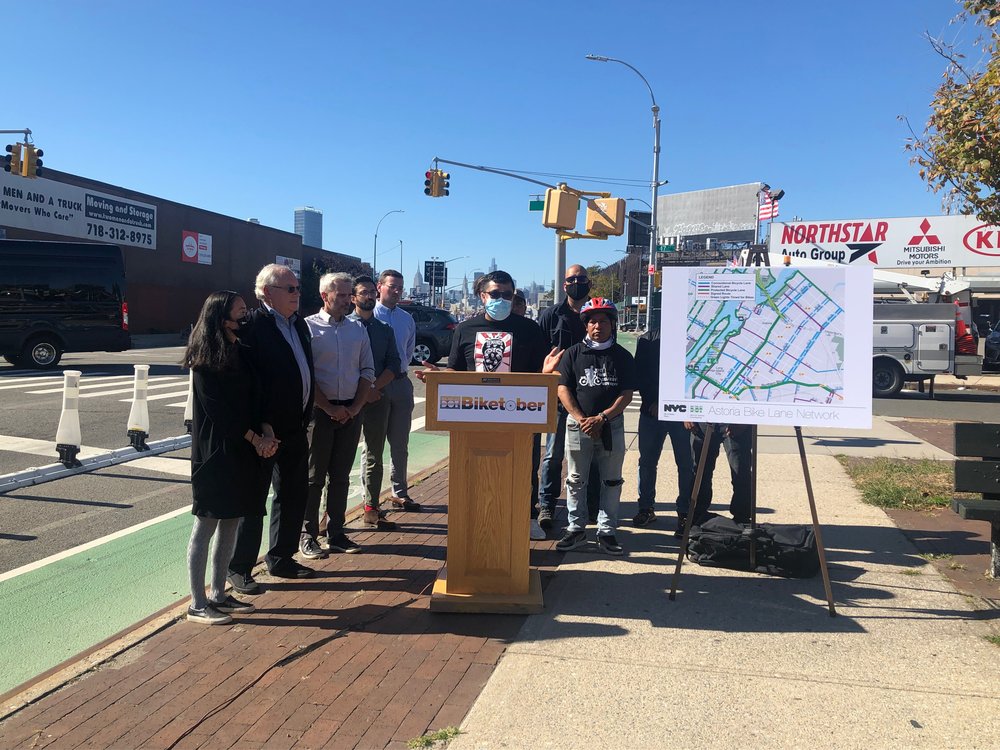Four new miles of protected bike lanes have been completed along Northern Boulevard, better connecting parts of Astoria and Woodside for city cyclists.
Representatives from the Department of Transportation (DOT) and cyclist advocates celebrated the newest stretch of two-way bike lanes spanning from 41st Avenue to Broadway Street.
“This bike lane represents a crucial connection for the Astoria bike network,” said DOT Commissioner Hank Gutman of the now 14-mile bike network in northwest Queens.
Gutman said that not only did the volume of ridership increase by 50 percent, but the combination of protected and conventional bike lanes helped reduce risk for cyclists.
Cyclist safety was increased by 32 percent according to a DOT report titled “Safe Streets For Cycling: How Street Design Affects Bicycle Safety and Ridership.” The study reviewed over 100 bike lane projects, including 95 miles of bike lanes throughout the city and the impact they had on cyclist risk.
In Queens, streets with a protected bike lane saw a 40 percent reduction in cyclist risk, according to the study. On the highest-risk streets, bicycling volume nearly doubled after a bike lane was installed.
The study calculated cyclist risk by dividing the number of bicyclist injuries per mile by the estimated bicyclist volume. The study showed reductions in risks for all of types of bike lanes, including a 34 percent reduction of cyclist risk on streets with a conventional bike lane in Brooklyn.
“Cyclist safety was increased by one-third across the entire 100 miles of bike lanes,” said Gutman.
In total, there are 181 miles of on-street protected bike lanes and 558 miles of conventional bike lanes in the city, with a majority of them being completed during the de Blasio’s administration.
“The bike lanes both encourage growth and make it safer,” added Gutman. “We are making use of all available tools to encourage cycling and alternative modes of transportation to the private car.”
Rafael Islas, a food delivery driver from Astoria, has seen two of his family members die within the past year while on the job delivering food throughout the city. It was just last month when his cousin was killed while delivering for apps like GrubHub and UberEats.
“I hope it gets better because we work in the streets,” said Islas. “When we leave at night, sometimes we don’t know if we’re going to make it back.”
Hildalyn Colon-Hernandez, director of Policy and Strategic Partnerships at Los Deliveristas Unido, celebrated the installation of the protected bike lanes, calling it a great step toward saving lives.
“If there were secure bike lanes, then many of the incidents we saw on the street would not have occured,” said Colon-Hernandez.
Gutman said the protected and conventional bike lanes are a critical artery to connecting cyclists across the city, as well as making the jobs of delivery workers safer.
“We learned in the pandemic how essential their services were, and as we recover from the pandemic, we rely on them even more,” said Gutman. “They are essential workers, every bit as much as police officers and healthcare workers.”



